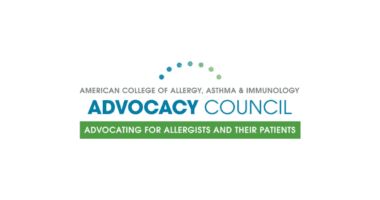Beginning April 5, health care providers (including allergy practices) and electronic health record (EHR) vendors must comply with the Office of the National Coordinator for Health Information Technology’s (ONC’s) requirements governing the prohibition against information blocking. This prohibition applies to all agreements, arrangements, and contracts that are still in effect, regardless of whether they were entered into prior to April 5, 2021.
Information blocking is broadly defined as an act or omission that is likely to interfere with access, exchange, or use of electronic health information (EHI), and
- If conducted by a health care provider, the provider knows that such practice is unreasonable and is likely to interfere with access, exchange, or use of EHI.
- If conducted by an EHR vendor, the vendor knows, or should know, that such practice is likely to interfere with access, exchange, or use of EHI.
Many health care organizations and societies have expressed concern that ONC’s rule will force physicians to release office notes and test results prior to physicians reviewing the information with the patient.
However, a practice is not considered to be information blocking if it is required by law or is covered under one of the eight exceptions to the prohibition. Additional information on these exceptions can be found on ONC’s website. If a practice does not fall under an exception, the practice would be evaluated based on the specific facts and circumstances to determine whether it constitutes information blocking.
For more information regarding information blocking, please refer to our previous Advocacy Insider article or the Information Blocking Resource Center for physicians and other providers.
In addition, the American Medical Association (AMA) is conducting an informal survey to collect members’ real-world examples, scenarios, and instances where the release of reports or notes without vital physician context or review with the patient could cause, or has caused, emotional or mental harm. Please send your examples to the AMA by April 30.
The Advocacy Council will monitor and advise you of changes effecting your practice – we have you covered.




